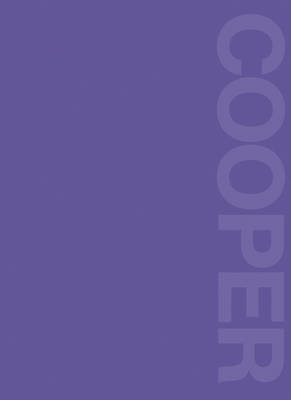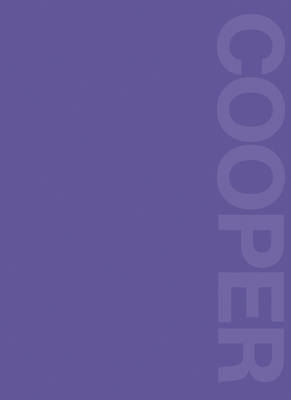
- Retrait gratuit dans votre magasin Club
- 7.000.000 titres dans notre catalogue
- Payer en toute sécurité
- Toujours un magasin près de chez vous
- Retrait gratuit dans votre magasin Club
- 7.000.0000 titres dans notre catalogue
- Payer en toute sécurité
- Toujours un magasin près de chez vous
Description
Muriel Cooper (1925-1994) was the pioneering designer who created the iconic MIT Press colophon (or logo)--seven bars that represent the lowercase letters "mitp" as abstracted books on a shelf. She designed a modernist monument, the encyclopedic volume The Bauhaus (1969), and the graphically dazzling and controversial first edition of Learning from Las Vegas (1972). She used an offset press as an artistic tool, worked with a large-format Polaroid camera, and had an early vision of e-books. Cooper was the first design director of the MIT Press, the cofounder of the Visible Language Workshop at MIT, and the first woman to be granted tenure at MIT's Media Lab, where she developed software interfaces and taught a new generation of designers. She began her four-decade career at MIT by designing vibrant printed flyers for the Office of Publications; her final projects were digital. This lavishly illustrated volume documents Cooper's career in abundant detail, with prints, sketches, book covers, posters, mechanicals, student projects, and photographs, from her work in design, teaching, and research at MIT.
A humanist among scientists, Cooper embraced dynamism, simultaneity, transparency, and expressiveness across all the media she worked in. More than two decades after her career came to a premature end, Muriel Cooper's legacy is still unfolding. This beautiful slip-cased volume, designed by Yasuyo Iguchi, looks back at a body of work that is as contemporary now as it was when Cooper was experimenting with IBM Selectric typewriters. She designed design's future.
Spécifications
Parties prenantes
- Auteur(s) :
- Editeur:
Contenu
- Nombre de pages :
- 240
- Langue:
- Anglais
- Collection :
Caractéristiques
- EAN:
- 9780262036504
- Date de parution :
- 22-09-17
- Format:
- Livre relié
- Format numérique:
- Genaaid
- Dimensions :
- 264 mm x 371 mm
- Poids :
- 2177 g

Les avis
Nous publions uniquement les avis qui respectent les conditions requises. Consultez nos conditions pour les avis.






